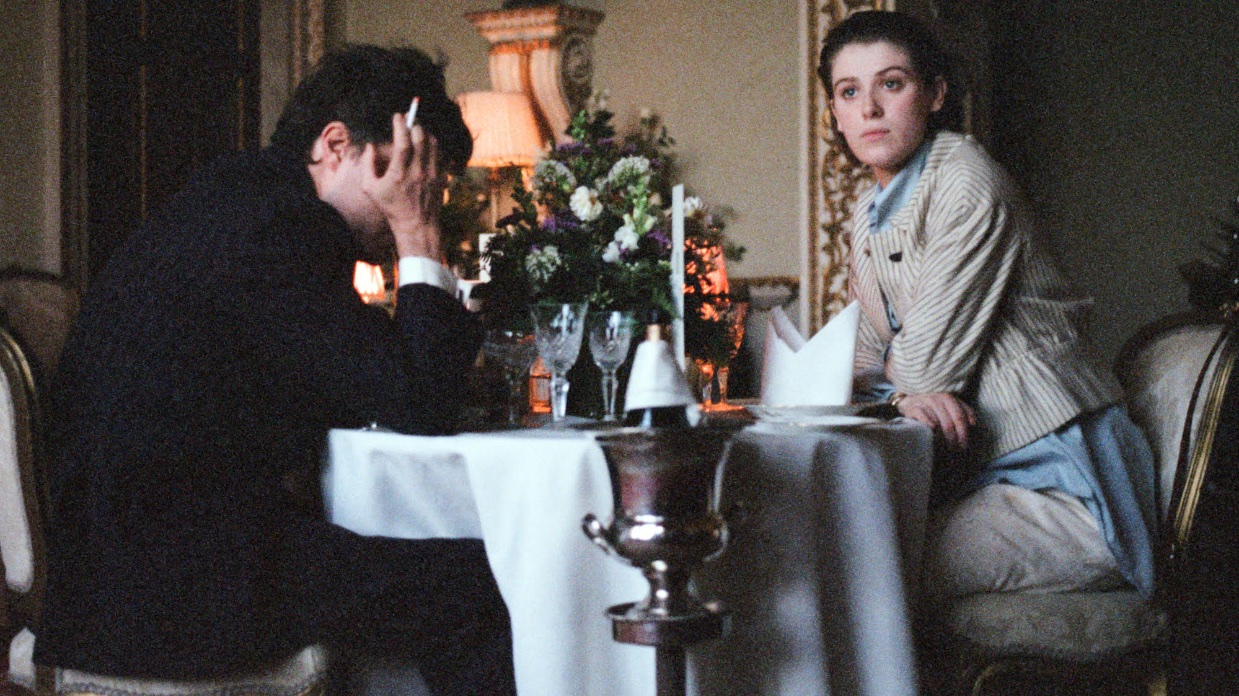 Back to selection
Back to selection
“Time will Heal the Filmic Regrets and Lost Ambitions”: Director Joanna Hogg | The Souvenir
 Tom Burke and Honor Swinton Byrne in The Souvenir
Tom Burke and Honor Swinton Byrne in The Souvenir Whenever directors watch their own films, they always do so with the knowledge that there are moments that occurred during their production — whether that’s in the financing and development or shooting or post — that required incredible ingenuity, skill, planning or just plain luck, but whose difficulty is invisible to most spectators. These are the moments directors are often the most proud of, and that pride comes with the knowledge that no one on the outside could ever properly appreciate what went into them.
So, we ask: “What hidden part of your film are you most privately proud of and why?”
How can I answer this when I don’t watch my films after I’ve finished them? I did watch my first film Unrelated recently, ten years after the fact—seemed like a safe distance and I was surprised by how much I had forgotten and didn’t even recognise. There were scenes I thought were there and discovered weren’t, ghosts of previous edits which had made their mark on me. I’ll consider The Souvenir in 2029. Who knows, maybe I’ll brave it sooner. Time will heal the filmic regrets and lost ambitions. Letting go and forgetting is part of my process—like shedding a skin, it’s necessary for the creation of new ideas and stories.
If I’m forced to see any of the film after it’s finished, it’s the last ten minutes when I’m waiting to do a Q&A after a screening. I’m always asked if I want to go into the theater earlier and I try and get away with going in at the last possible moment. Inevitably the film is still playing and I have to stand there in agony watching the last couple of scenes before the credits roll.
I know the endings of all my films really well. With Exhibition I have watched the artist couple pack up their books and leave the house multiple times. With Archipelago it’s the goodbye to the house, then helicopter flying up out of frame. With Unrelated, the solitary woman leaving the Italian house and driving away in a taxi. There’s a melancholy to this experience of repeated goodbyes. There’s a goodbye at the end of all my films—The Souvenir is no exception. So I can look forward to watching the big doors of the film school studio open…and open…and open. No doubt it’ll make me grateful for the good luck finding a disused RAF aircraft hanger in North Norfolk—and then I might let my mind drift off to think of how I’m going to end the second part of the film. The Souvenir is different from the others because I haven’t finished it yet. I’m shooting the second part of the story this summer. It’s still alive and so the regrets can be kept at bay and faced another day in the future. The filmic flame is still alive.
What is this difficulty I have in looking back at the work? It makes sense to me that you put as much spontaneity and life into a project and then leave it to other people to reflect upon and decipher it for themselves. Even more so in this modern era of capturing and fixing and judging a work or an image—the focus on the end result, rather than the process. It certainly makes the very act of writing this piece a challenge.
